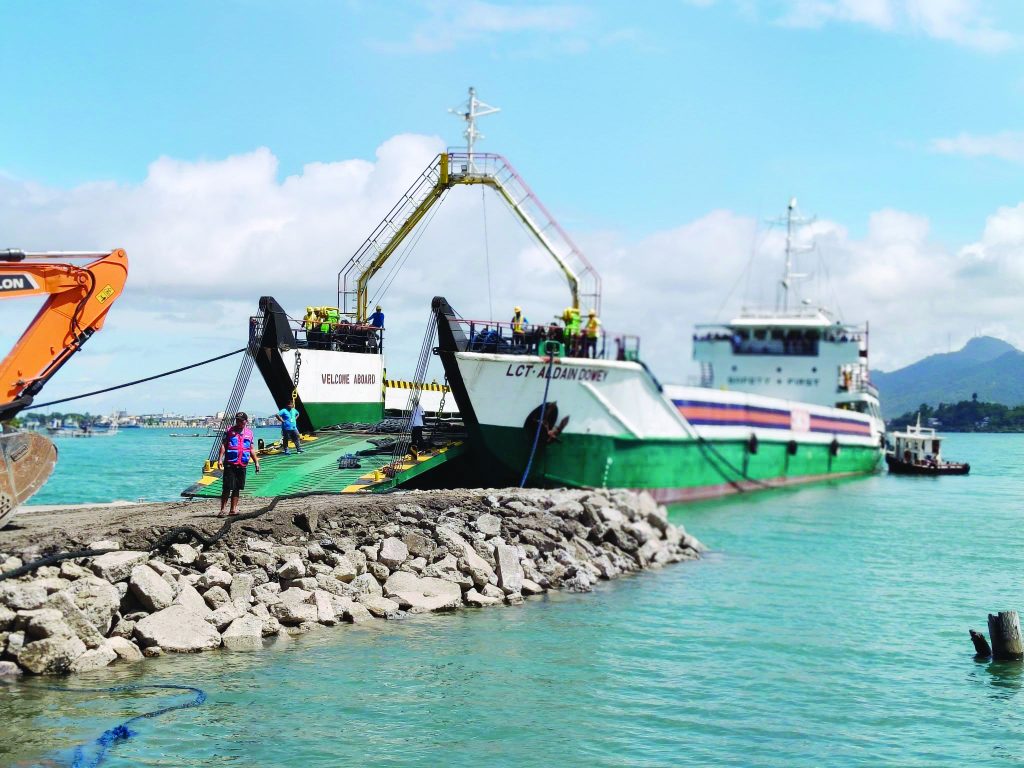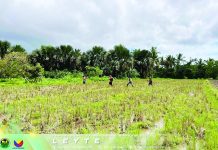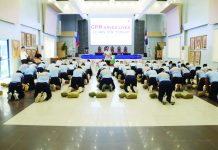
Due to San Juanico Bridge weight limit
TACLOBAN CITY – Local government units (LGUs) across Eastern Visayas are urgently mobilizing to mitigate the economic and logistical disruptions caused by new vehicle weight restrictions on the San Juanico Bridge, the vital link between Leyte and Samar islands.
On May 14, the Department of Public Works and Highways (DPWH) imposed a temporary ban on vehicles weighing more than three tons from crossing the bridge, citing safety concerns. The restriction has since strained supply chains, pushed up commodity prices, and impacted public services across the region.
In Tacloban City, the region’s main commercial hub, the impact of the three-ton weight limitation of vehicles at the iconic bridge could also be felt.
Janis Canta, City Planning and Development Officer, warned that the city may soon experience shortages of fuel and essential goods, as demands rise from surrounding provinces.
“Tacloban is the supply hub of Eastern Visayas. This bridge restriction doesn’t just affect us—it affects the entire region,” Canta said on Thursday, May 22.
“We’ve just regained economic momentum after the pandemic, and now we face a new challenge. We’re appealing to the national government for urgent intervention to keep basic supplies moving.”
In Basey, Samar, Mayor Luz Ponferrada expressed concern about possible food shortages if no alternate transport route is made available.
“My fear is hunger,” Ponferrada said. “If we don’t have an alternative for heavy trucks to transport essential goods, our people will suffer.”
As a temporary solution, officials have identified the fish port in Barangay Amandayehan, Basey as a potential roll-on/roll-off (RoRo) route for heavy vehicles.
Its operation is expected to start once the rehabilitation of the fish port will be completed.
Meanwhile, the provincial government of Samar declared a state of emergency on May 20, allowing the use of its calamity fund to cushion the economic impact and speed up local response efforts.
In Eastern Samar, Oras Mayor Roy Ador reported a “large impact” on both the local economy and essential services.
“Consumers are now complaining about rising prices of goods,” Ador said in a statement on May 21.
“Our economic and commercial office has begun investigating and found that some establishments have imposed price increases. We’ve recommended a price freeze as we hold focused discussions with stakeholders to find practical solutions.”
Ador also noted that public services such as emergency patient transport and garbage collection are being affected by fuel shortages, as fuel deliveries face delays.
In Borongan City, the provincial capital, Mayor Jose Ivan Dayan Agda convened a meeting with the Department of Trade and Industry (DTI) and the local Chamber of Commerce to assess the emerging crisis.
“We will create a special task force to monitor supply chains, price levels, and address any disruptions caused by the weight restriction,” Agda said in a public post.
“We urge residents to remain calm, avoid panic buying, and rely only on official information.”
And in Calbayog City, in response to supply chain disruptions caused by restrictions on San Juanico Bridge, its local price coordinating council (LPCC), chaired by Mayor Raymund Uy, convened to stabilize prices.
The meeting led to the approval of price ceilings: P 420 per kilo for pork and P215 for whole chicken. These limits apply to public markets, supermarkets, and meat shops, but not to ‘talipapa’ or convenience stores.
Supermarkets and distributors assured the city of sufficient supply. Meanwhile, the city government has lifted the truck ban and will enforce the display of price tags on essential goods.
JOEY A. GABIETA



